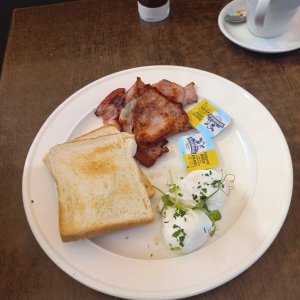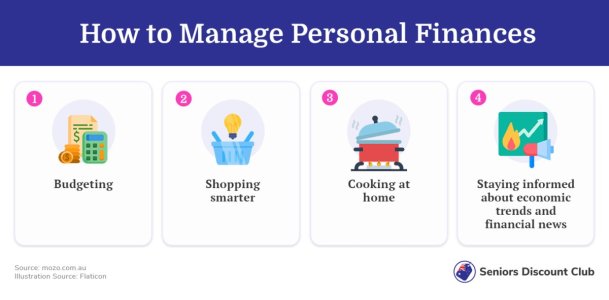This 'appalling' brunch price hike exposes the deepening cost of living nightmare
By
Seia Ibanez
- Replies 28
A humble breakfast of poached eggs and bacon on toast, a staple in many Australian households and cafes, has recently become a symbol of the escalating cost of living crisis.
A cafe's exorbitant pricing for this simple dish has sparked a nationwide conversation about the affordability of everyday essentials.
Tania Lewis, a holistic therapist, was visiting Busselton—a popular tourist destination in WA's southwest—when she decided to indulge in a seemingly modest breakfast at her hotel.
However, the $19 price tag for the basic meal left her, and many others, astounded.

The meal consisted of two poached eggs, two slices of white bread, a couple of rashers of bacon, and two sachets of Devondale natural butter. To add to the dismay, her $10 orange juice was served warm and without ice.
Taking to social media to express her disbelief, Lewis posted a photo of her meal with the caption, '$19 breakfast in Busselton. Would you pay for this?'
The response was swift and divided. Some sympathised with her shock.
‘Doesn't seem that long ago that this would have been $10 or $12 tops!’ a user replied.
Another added: ‘No way, that’s appalling.’
One user said that Busselton was a ‘tourist town’ that loved ripping visitors off.
‘To be honest, that is overpriced, they said.
Another said, ‘At least it’s real butter,’ to which Lewis replied, ‘Bonus. I got what I paid for.’
Others pointed out the hidden costs of running a cafe, such as labour, rent, utilities, and insurance.
‘Cost of produce, plus cost for labour (at least three people) plus rent, plus cleaning costs, plus electricity, plus insurance, plus tourist tax levy—and so the list goes on,’ one said.
‘If you don’t like paying to be served with what you asked for, then stay at home.’
Lewis replied that she never said the meal wasn’t tasty, but she provided a snapshot of ‘Australia’s inflation’.
The incident has highlighted a broader issue that many Australians are facing: the rising cost of living.
With inflation rates soaring, the price of groceries, utilities, and dining out has increased significantly, putting a strain on household budgets. The Australian Bureau of Statistics is set to release the latest inflation figures soon, with economists predicting a slight decrease from 4.9 per cent to 4.5 per cent.
The Treasury has forecasted that inflation will slow to 3.75 per cent this financial year and further to 2.75 per cent in the following year.
How to Navigate the Rising Cost of Living
While the government and economists grapple with the larger economic issues, there are steps individuals can take to manage their personal finances in the face of rising costs.
Budgeting is more important than ever. By keeping track of income and expenses, you can identify areas where you can cut back and save money.
Shopping smarter can help. This could mean buying in bulk, taking advantage of sales and discounts, or switching to cheaper brands or alternatives.
Cooking at home, as many of the respondents to Lewis's tweet suggested, can also save money. Not only can you control the cost of the ingredients, but you can also ensure the quality of the food you eat.
Finally, staying informed about economic trends and financial news can help you make better decisions about your money. News of price hikes and inflation do translate to higher costs down the line, including labour, as some users pointed out in Lewis’ case.
Aside from poached eggs, fish and chips are also long-time Aussie favourites. But with the glooming cost-of-living crisis, those days of affordable and delicious family meals may be in jeopardy because of the looming price hike.
A fish and chip shop had recently been the talk of the town after a customer shared photos of its changing menu board prices over five years.
Several customers and online users were met with shock and sadness at the price hike of their beloved favourite. Read more about the story here.

What are your thoughts on the rising cost of living, members? Have you noticed an increase in the cost of your favourite breakfast items? Share your experiences and tips in the comments below.
A cafe's exorbitant pricing for this simple dish has sparked a nationwide conversation about the affordability of everyday essentials.
Tania Lewis, a holistic therapist, was visiting Busselton—a popular tourist destination in WA's southwest—when she decided to indulge in a seemingly modest breakfast at her hotel.
However, the $19 price tag for the basic meal left her, and many others, astounded.

Tania Lewis shared her disbelief at the $19 brunch she got. Credit: @TaniaLe84494434 / X (formerly Twitter)
The meal consisted of two poached eggs, two slices of white bread, a couple of rashers of bacon, and two sachets of Devondale natural butter. To add to the dismay, her $10 orange juice was served warm and without ice.
Taking to social media to express her disbelief, Lewis posted a photo of her meal with the caption, '$19 breakfast in Busselton. Would you pay for this?'
The response was swift and divided. Some sympathised with her shock.
‘Doesn't seem that long ago that this would have been $10 or $12 tops!’ a user replied.
Another added: ‘No way, that’s appalling.’
One user said that Busselton was a ‘tourist town’ that loved ripping visitors off.
‘To be honest, that is overpriced, they said.
Another said, ‘At least it’s real butter,’ to which Lewis replied, ‘Bonus. I got what I paid for.’
Others pointed out the hidden costs of running a cafe, such as labour, rent, utilities, and insurance.
‘Cost of produce, plus cost for labour (at least three people) plus rent, plus cleaning costs, plus electricity, plus insurance, plus tourist tax levy—and so the list goes on,’ one said.
‘If you don’t like paying to be served with what you asked for, then stay at home.’
Lewis replied that she never said the meal wasn’t tasty, but she provided a snapshot of ‘Australia’s inflation’.
The incident has highlighted a broader issue that many Australians are facing: the rising cost of living.
With inflation rates soaring, the price of groceries, utilities, and dining out has increased significantly, putting a strain on household budgets. The Australian Bureau of Statistics is set to release the latest inflation figures soon, with economists predicting a slight decrease from 4.9 per cent to 4.5 per cent.
The Treasury has forecasted that inflation will slow to 3.75 per cent this financial year and further to 2.75 per cent in the following year.
How to Navigate the Rising Cost of Living
While the government and economists grapple with the larger economic issues, there are steps individuals can take to manage their personal finances in the face of rising costs.
Budgeting is more important than ever. By keeping track of income and expenses, you can identify areas where you can cut back and save money.
Shopping smarter can help. This could mean buying in bulk, taking advantage of sales and discounts, or switching to cheaper brands or alternatives.
Cooking at home, as many of the respondents to Lewis's tweet suggested, can also save money. Not only can you control the cost of the ingredients, but you can also ensure the quality of the food you eat.
Finally, staying informed about economic trends and financial news can help you make better decisions about your money. News of price hikes and inflation do translate to higher costs down the line, including labour, as some users pointed out in Lewis’ case.
Aside from poached eggs, fish and chips are also long-time Aussie favourites. But with the glooming cost-of-living crisis, those days of affordable and delicious family meals may be in jeopardy because of the looming price hike.
A fish and chip shop had recently been the talk of the town after a customer shared photos of its changing menu board prices over five years.
Several customers and online users were met with shock and sadness at the price hike of their beloved favourite. Read more about the story here.
Key Takeaways
- A Western Australian cafe's hefty charge for a simple breakfast has brought attention to the nation's cost of living inflation.
- Tania Lewis, a holistic therapist, expressed her disappointment on social media over a $19 poached eggs and bacon meal and a $10 warm orange juice without ice.
- The post sparked various reactions, with some criticising the high price and others defending the cafe's costs considering the expenses they incur.
- The incident serves as an indicator of Australia's inflationary pressures, with the Australian Bureau of Statistics scheduled to release updated figures.
Last edited:








